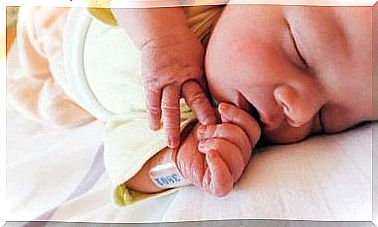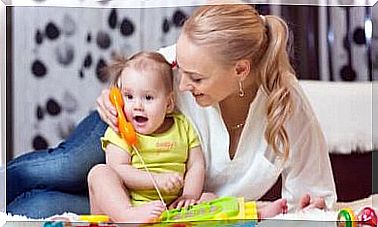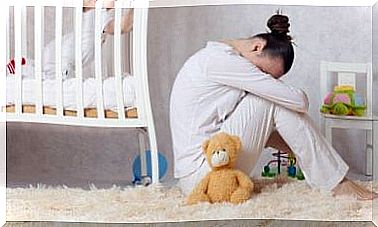When Should You Consult A Child Psychologist?
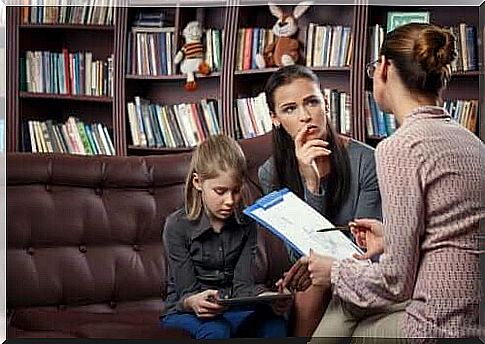
While going to a child psychologist can create some resentment, it is sometimes necessary. If there is a situation, feeling, or behavior that is affecting your child’s life and happiness, seek help.
Parenting does not come with an instruction manual. Although we try to do our best, we can sometimes feel overwhelmed and need to ask for help. Going to a child psychologist can create doubt and fear. However, it is the right decision in many cases.
What is normal?
At some point, almost all parents wonder if their child’s behavior is normal and temporary, or if they should worry. Do not worry. It is important to know that children go through different stages of characteristic behaviors as they go through their developmental process. It helps them develop as human beings.
For example, when children are two years old, they enter a stage of negativity and tantrums. This is perfectly normal. Likewise, it is common for children, up to the age of seven, to have difficulty staying focused or regulating their behavior if they are tense.
Therefore, certain types of behaviors or fears may be voice completely in agreement with a certain age and stop again as the child grows. On the other hand, the child’s personality also plays a crucial role. An introverted child will enjoy being alone, while a more restless child will require extra external stimuli.

Before we categorize a behavior as problematic, we need to find out if it is part of the developmental stage that our children are going through or if it is part of their personality.
Sometimes, it is also possible that the focus of the intervention is actually the parents and not the child. We as parents can be too demanding or overprotective towards the child. It can make us have an unrealistic view of childhood. If this occurs, a psychological intervention, dedicated to informing the parents, can resolve the situation.
When should you go to a child psychologist?
Unfortunately, there are still some taboos under the decision to go to a child psychologist. Some parents may think that it is not really necessary. They may also look at it as a sign of weakness.
Seeking professional help does not mean you are a bad parent. Nor does it have to mean that you have done something wrong. Conversely, it only shows that you want to contribute the best education and childhood for your children.
There are some situations that, with certainty, can be addressed over time. When there is a change in children’s lives, such as a divorce or a transfer to another school, it may just take time to adjust to the new situation. However, it is important to be aware, in case this adjustment does not occur.
Likewise, if we believe it is necessary, it may be appropriate to go to a child psychologist to help the child get through this stage. Sometimes, prevention is the best medicine. Having support can prevent circumstances from affecting your child in a negative way or overwhelm him or her.
On the other hand, we must keep in mind that there are situations where it is best to act as soon as possible. Otherwise, the symptoms may get worse or chronic. The child will thereby miss part of his childhood, as long as we do not contribute a solution to the situation.
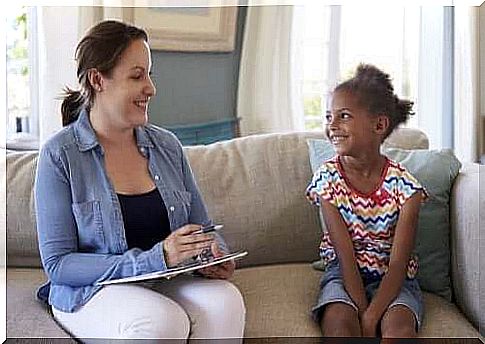
Highlights to keep in mind
The main parameters we should be aware of when deciding whether or not to go to a child psychologist are the following:
- Behavior that is not normal. It may be that our child exhibits a very different behavior from the rest of the children his or her age. It may also be that the behavior changes radically from one day to the next. That is why it is important to know our children’s developmental stages and their personality.
- Time. If the abnormal behavior or mood persists for several months, we should start considering going to a professional. This may mean that the child is not able to handle situations on their own and needs help.
- Influence on their daily lives. If a behavior, fear, or emotional state significantly affects the child’s daily life and well-being, seek help. Even if it has not been on for a long time. You do not have to wait if the effect is significant.
- Physical symptoms without medical explanation. If the child begins to have frequent headaches, stomach aches or skin problems, without medical explanation, it may be a somatization of emotional problems.



